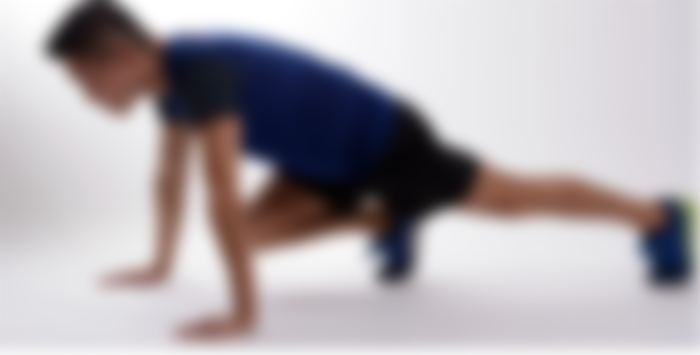1 EXERCISE OF GOOD HYGIENE

One of the best ways to avoid getting sick and spreading disease is to wash your hands. One of the easiest ways to catch a cold or the flu is to rub your nose or eyes when your hands are contaminated with bacteria. Your best defense against this contamination is to wash your hands regularly. Good hygiene can also prevent the spread of more serious diseases such as pneumonia and diarrheal illnesses, which kill more than two million children under the age of five each year. Even the spread of the deadly Ebola virus can be minimized by simply washing your hands.
There are times when hand washing is especially important to protect your health and the health of others. You must wash your hands:
After using the toilet.
After changing diapers or helping a child use the bathroom.
Before and after treating a wound or cut.
Before and after being with someone who is sick.
Before preparing, serving or eating.
After sneezing, coughing or nasal blisters.
After touching an animal or animal waste.
After handling the garbage.
And don't think you're washing your hands properly. Studies show that a large proportion of people who use public toilets do not wash their hands or wash their hands properly afterwards. How do you wash your hands?
Soak your hands in running water and apply soap.
Rub your hands with a lather and remember to clean your fingernails, thumbs, hands and between your fingers.
Keep rubbing for at least 20 seconds.
Rinse under clean running water.
Wipe off with a clean cloth or paper towel.
These steps are simple, but they can prevent disease and save lives.
2 USE AND CLEAN SAFE WATER

In some countries, it is normal to have enough drinking water for the family. However, access to clean drinking water can be a problem anywhere in the world when a critical, usually potable, supply becomes contaminated due to flooding, storms, burst pipes or other issues. If water does not come from a safe source or is stored improperly, it can cause parasite infestation, as well as cholera, life-threatening diarrhea, typhoid, hepatitis, and other infections. Unsanitary drinking water is one of the causes of around 1.7 billion cases of diarrhea each year.
There are many things you can do to delay or prevent the onset of the disease.
Cholera is most often transmitted when a person drinks water or eats food contaminated with the feces of infected people. What steps can you take to protect yourself from this and other types of water pollution immediately after a disaster?
Make sure that all the water you drink, including water used for brushing teeth, making ice cream, washing food and washing dishes or cooking, is from a safe source, such as: B. a properly handled general delivery or sealed bottles from a company. Trust.
If there is a risk that the hose will be contaminated, boil the water before using it or treat it with an appropriate chemical.
Follow the manufacturer's instructions carefully when using chemicals such as bleach or water purification tablets.
Use good quality water filters when they are available and affordable.
If you do not have water treatment products, add bleach, eight drops per liter of water (two drops per liter), mix well and let the water sit for 30 minutes before using. use it.
Always store treated water in clean, covered containers to protect it from possible recontamination.
Make sure that all containers in which water is extracted from the stored food, e.g. a trowel, are clean.
Handle water containers with clean hands and do not immerse hands or fingers in water used for drinking.
3 STAY PHYSICALLY ACTIVE

A soccer ball and a pair of soccer shoes.
Regardless of your age, you need regular physical activity to stay in shape. A lot of people don't exercise enough today. Why is exercise important? Being physically active can help you:
Sleep well.
Keep on going.
Keep your legs and muscles strong.
Maintain or reach a healthy weight.
Lower your risk of depression.
Reduce the risk of premature death.
When you are not physically active, you are more likely to:
You have heart disease.
You have type 2 diabetes.
Develop high blood pressure
Develop high cholesterol
He is suffering from a stroke.
The type of physical activity that is right for you depends on your age and health. It is therefore advisable to consult your doctor before starting a new exercise program. According to various recommendations, children and adolescents should be exposed to at least 60 minutes of moderate to vigorous activity each day. Adults should have 150 minutes of moderate activity or 75 minutes of vigorous activity each week.
Pick a fun activity. You may want to consider basketball, tennis, soccer, brisk walking, biking, gardening, tree cutting, swimming, kayaking, jogging, or any other aerobic exercise. How do you know if an activity is moderate or vigorous? A general guideline would be that moderate activity will make you sweat, but more intense exercise will prevent you from continuing a conversation while you are doing it.
4 HAVE ENOUGH SLEEP

The amount of sleep required varies from person to person. Most children sleep 16 to 18 hours per day, infants about 14 hours, and preschoolers about 11 or 12 years old. School-aged children typically need at least 10 hours of sleep, teens maybe 9 or 10, and adults 7-8.
Adequate rest should not be taken for granted. According to experts, getting enough sleep is important for:
Growth and development in children and adolescents.
Learn and record new information.
Maintain the right balance between hormones that affect metabolism and weight.
Cardiovascular health.
Prevention of disease.
Lack of sleep has been linked to obesity, depression, heart disease, diabetes and tragic accidents. It definitely gives us a good reason to get enough rest.
So what can you do when you're having trouble getting enough sleep?
Try to go to bed at the same time each day.
Make your room calm, dark, relaxing, and neither too hot nor too cold.
Do not watch TV or use devices in bed.
Make your bed as comfortable as possible.
Avoid heavy meals, caffeine, and alcohol before bed.
If you still experience insomnia or other sleep disturbances after following these tips, such as: B. Excessive daytime sleepiness or difficulty breathing while sleeping, consult a qualified physician.




4 Excellent Tips. They are all verified ways to live healthy.